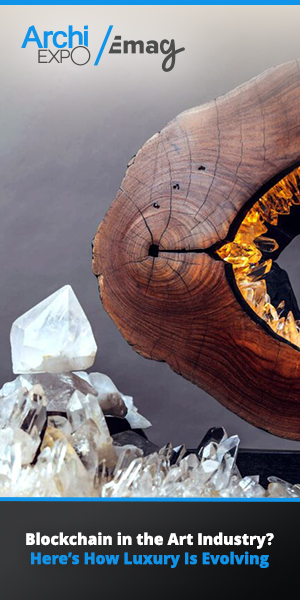Artificial intelligence is revolutionizing the timber industry through various applications including timber measurement, supply chain tracking, satellite data analysis, and reforestation efforts.
The integration of artificial intelligence (AI) into the timber industry is rapidly reshaping design processes and accelerating innovation. According to Wood Central’s 2023 report, AI is poised to impact 28% of forestry and forest-related industries, with US-based Construction Specifier highlighting the adaptation of the architecture and design community to AI-driven challenges.
From precise timber measurement to supply chain optimization and reforestation initiatives, AI technologies are reshaping every aspect of the timber sector. Across Europe and the US, a multitude of pioneering companies are harnessing AI’s potential to revolutionize forestry practices, ushering in a new era of efficiency, sustainability, and environmental stewardship. Driven by a collective commitment to combat deforestation, mitigate climate change, and promote responsible forestry management, these companies exemplify the intersection of technology and sustainability.
Innovative AI Technologies Transforming Timber Industry Design
Leading this transformation in the US is architecture firm Ankrom Moisan, leveraging “Midjourney” software to streamline conceptual design phases. This AI-powered tool facilitates the presentation of project-specific design precedents aligned with client requirements and aesthetic preferences, significantly enhancing efficiency and design accuracy. Midjourney AI has earned a reputation as the “ChatGPT for artists,” revolutionizing design processes and enabling near-real-time alterations of project designs. This advancement has led to increased efficiency and creativity, with AI-generated imagery aiding in visualizing complex concepts for mixed-use mass timber buildings and other structures.
Additionally, Leko Labs, a “carbon-negative construction company,” pioneers wood-based building systems enhanced by artificial intelligence (AI) and robotics. Their patented cross-laminated system combines structural strength with insulation, acoustic, thermal, and static properties, offering a sustainable alternative to traditional construction methods. With software automating design stages like wood volume optimization and defect detection, Leko Labs ensures precision and efficiency. The company’s Robofactory enables on-demand customization of prefabricated components, drastically reducing construction times. Founded in 2017, Leko Labs has raised $21 million in a Series A financing round, propelling its mission to revolutionize the construction industry with eco-friendly materials and advanced technology.

The timber industry is witnessing a surge of innovation driven by artificial intelligence (AI) technologies, with companies like Xylene, based in Germany, leading the charge in tracking wood throughout the value chain and supply chain. Ecosia, headquartered in Berlin, utilizes advertising revenue from basic search queries to fund reforestation efforts worldwide. Tesselo, located in Portugal, employs satellite images and AI to aid in disaster monitoring. Dendra Systems, based in the UK, accelerates tree planting using AI and drones.
In the Netherlands, 20tree.ai offers predictive planet intelligence by analyzing satellite imagery with AI algorithms, and Satelligence leverages satellite data to combat deforestation. Land Life Company, another Netherlands-based company, has patented products for growing trees in dry and degraded lands. CollectiveCrunch, based in Finland, provides a Software as a Service (SaaS) solution for predicting wood mass, species, and quality using their AI platform. Lastly, Terramonitor, situated in Finland, democratizes satellite data through pre-processed maps generated by AI and machine learning models. Together, these companies exemplify the diverse applications of AI in tackling forestry challenges and promoting sustainable practices in the timber industry.

AI Timber: A Project by Maestro Technologies
AI Timber epitomizes a groundbreaking fusion of traditional timber and cutting-edge AI technology, aimed at revolutionizing sustainable construction practices. This innovative approach meticulously analyzes timber characteristics through advanced algorithms, ensuring optimal cuts to minimize waste and environmental impact.
By harnessing sophisticated scanning techniques, AI Timber maximizes material efficiency, significantly reducing construction waste while enhancing structural integrity. Real-world implementations underscore its effectiveness, showcasing remarkable reductions in waste alongside seamless integration with natural surroundings.
Despite challenges like technological integration and initial costs, solutions such as targeted training and emphasizing long-term benefits pave the path for widespread adoption. In essence, AI Timber heralds a new era of construction, where precision, efficiency, and environmental stewardship converge to shape a sustainable future for generations to come.
“Wood is one of the oldest building materials we have, and A.I. is letting us use it more sustainably,” says Carlo Ratti. “AI could reduce wood waste in cross-laminated timber (CLT) production by up to 30%, but that’s only one of the benefits. It’s also beautiful: the irregular geometry celebrates the original shape of the tree. We are using the artificial to bring out the brilliance of the natural.”
The prototype of AI Timber was produced in Shanghai in the summer of 2023 as part of the DigitalFUTURES conference.
Timbeter: Revolutionizing Timber Measurement with AI to Combat Illegal Logging
Estonian CleanTech startup Timbeter is spearheading a transformation in the forestry industry by leveraging artificial intelligence to revolutionize timber measurement, combat illegal logging, and drive sustainability. The company’s AI-powered solution addresses the critical need for accurate timber measurement, transparency, and sustainability in forestry practices.
Illegal logging poses a significant threat to global forests, with approximately 30% of globally traded timber sourced from illegal harvesting, resulting in environmental degradation and substantial economic losses. Timbeter’s CEO, Anna-Greta Tsahkna, emphasizes the importance of digitalizing the forestry sector to ensure sustainability, fair trade, and effective climate change mitigation.
Traditional manual measurement methods are plagued by errors of up to 30%, leading to inaccurate estimates of forest volumes and harvested resources. Timbeter’s solution enables quick and accurate timber measurement through digitalization and smart device technology, providing real-time data management throughout the timber supply chain. By digitizing processes and enhancing transparency, Timbeter contributes to the detection and prevention of illegal logging activities.

Moreover, Timbeter’s digitalization efforts align with upcoming regulations such as the EU Deforestation Regulation (EUDR) and Corporate Sustainability Due Diligence regulation (CSDDD), which require reporting on timber origin and carbon emissions. The company’s technology facilitates traceability and transparency in the timber supply chain, aiding compliance with regulatory requirements and fostering sustainable practices.
Timbeter’s vision extends beyond combating illegal logging to becoming a global standard solution for sustainable forest management. By leveraging AI solutions and expanding into target markets, including Latin America, Europe, the US, and Canada, Timbeter aims to lead the digital revolution in forestry, mitigate climate change impacts, and support informed policymaking.










